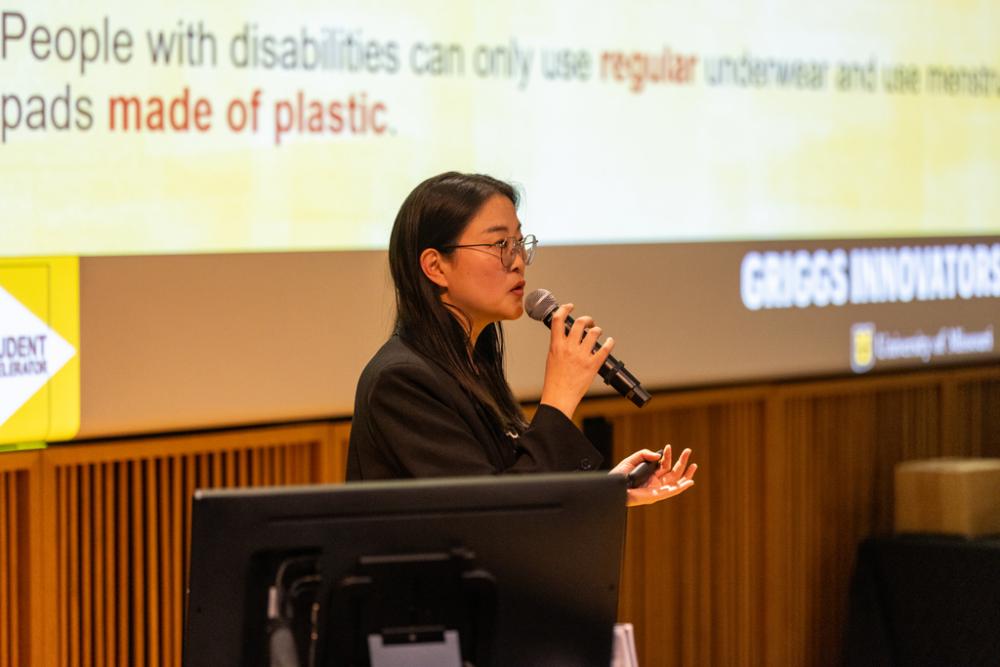
Jia “Chloe” Wu placed third in Mizzou’s Entrepreneurial Quest competition with her design for sustainable period underwear for people with disabilities.
Students in Mizzou’s Department of Textile and Apparel Management (TAM) aim to do more than design new looks. They also work toward making the industry and the apparel it produces more accessible and sustainable.
Jia “Chloe” Wu, a Ph.D. candidate in the TAM department, has focused her research and doctoral work on creating adaptive fashion for different body types, needs and abilities. This year, Wu won a Lee Henson Access Mizzou Award – for students, faculty and staff who make MU a more inclusive space for people with disabilities – and placed third in Mizzou’s Entrepreneur Quest competition with her design for sustainable period underwear made specifically for people with disabilities.
Wu became interested in adaptable clothing when she worked as the vice director of a fashion institute in China after earning a master’s degree in fashion design and engineering. In this role, she had the opportunity to organize a fashion show of adaptive clothing and learn more about the challenges those with disabilities face when choosing clothing. This, combined with her passion for bridging the fashion industry and education, led her to pursue a doctorate at Mizzou.
For her dissertation project at MU, Wu is developing functional ski suits for sit skiers through a user-centered design approach and case study research method that utilizes 3D design toolsets to create virtual and physical prototypes. “This research aims to improve the comfort and safety of the skiing experience for sit skiers,” says Wu.
Wu has been working with Dr. Jung Hyup Kim from the Department of Industrial and Systems Engineering to use motion sensors to collect and measure data from elbow, shoulder, and torso movements of skiers with disabilities.
Wu also has benefited from TAM’s dynamic and collaborative academic environment fostered by department chair Dr. Jung Ha-Brookshire in addition to the expertise of her advisor and co-advisor, Dr. Li Zhao and Dr. Kerri McBee-Black, respectively. Both Zhao and McBee-Black shared their knowledge and research findings surrounding adaptive design and the consumers those designs are intended to serve. Wu has found TAM’s 3D body scanning and sewing labs helpful for developing her research.
After earning her doctorate, Wu intends to obtain a faculty position at a research university to integrate research and industry expertise into her teaching to create a more diverse, inclusive and collaborative classroom environment. “I plan to combine cutting-edge research with teaching practice and utilize experiential learning to bridge the gap between the classroom and the real world,” says Wu.
Overall, Wu is committed to improving inclusion and sustainability in the fashion industry. Wu says, “With my extensive industry experience and by promoting disability inclusion and implementing sustainable practices throughout the supply chain, I aim to contribute to a more socially responsible and environmentally conscious fashion environment.”